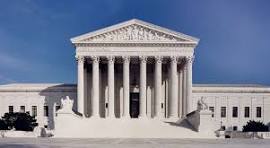Supreme Court Poised to Issue Major Rulings on Presidential Immunity, Abortion Access

The U.S. Supreme Court is set to deliver significant rulings on two highly contentious issues: presidential immunity and abortion access. These decisions could have far-reaching implications for the balance of power in the government and for reproductive rights in the United States.
Presidential Immunity
Background
The case on presidential immunity addresses whether a sitting or former president can be subject to civil and criminal investigations and prosecutions. This issue has come to the forefront due to various legal challenges faced by former President Donald Trump, including allegations of financial misconduct and interference in electoral processes.
Key Issues
- Scope of Immunity: The Court will consider the extent of immunity a president enjoys while in office and whether this immunity extends to actions taken before or after their term.
- Separation of Powers: This case tests the boundaries of the separation of powers doctrine, examining how much protection the executive branch has from judicial and legislative scrutiny.
- Precedents: The ruling could set important precedents for future presidents, influencing how they conduct themselves in and out of office.
Implications
- Legal Accountability: A ruling that limits presidential immunity could pave the way for greater legal accountability for sitting and former presidents, potentially increasing transparency and ethical standards in the executive branch.
- Political Ramifications: Depending on the outcome, this decision could affect the political landscape, impacting how presidential candidates are vetted and how current presidents operate.
Abortion Access
Background
The case concerning abortion access challenges state laws that restrict or ban abortion, particularly focusing on a law that significantly limits access to the procedure. This follows a series of restrictive abortion laws passed in several states, aiming to overturn or weaken the landmark Roe v. Wade decision that legalized abortion nationwide in 1973.
Key Issues
- State vs. Federal Rights: The Court will evaluate whether state laws that restrict abortion access violate the constitutional rights established under Roe v. Wade.
- Viability Standard: Central to the case is the viability standard, which determines when states can regulate abortions based on the fetus’s ability to survive outside the womb.
Implications
- Reproductive Rights: A ruling that upholds restrictive abortion laws could significantly curtail reproductive rights and access to abortion services, particularly affecting women in conservative states.
- Legal Precedents: If the Court overturns or undermines Roe v. Wade, it would mark a seismic shift in American jurisprudence, influencing future legal battles over reproductive rights.
- Social and Political Impact: Such a decision could ignite widespread social and political activism, both in support of and against abortion rights, further polarizing the nation on this issue.
Public and Expert Reactions
Legal experts and advocacy groups are closely watching these cases, recognizing their potential to reshape key aspects of American law and society. Advocates for presidential accountability and reproductive rights are preparing for possible outcomes and planning their next steps based on the rulings.
Timeline and Next Steps
The Supreme Court is expected to announce its decisions by the end of its current term. Once issued, these rulings will be analyzed and debated extensively, with immediate responses from political leaders, legal analysts, and advocacy organizations.
The upcoming Supreme Court rulings on presidential immunity and abortion access are poised to be among the most consequential decisions in recent history. They will not only determine the immediate legal landscape but also set precedents that will influence American law and politics for years to come.





